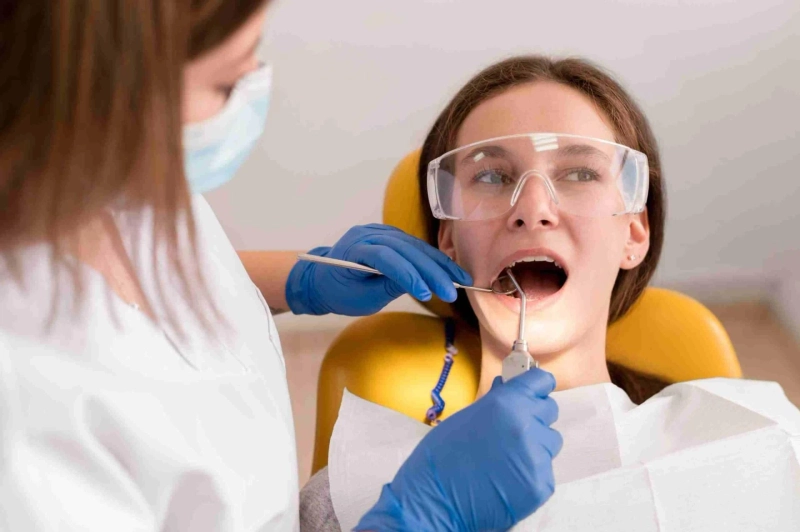Root canal infections occur when bacteria invade the innermost part of the tooth, known as the pulp. This can lead to inflammation, pain, and ultimately the need for root canal therapy to save the tooth. Understanding the common causes of root canal infections is crucial for prevention and maintaining oral health. Here\'s an in-depth exploration of these causes:
Untreated Cavities: One of the primary causes of root canal infections is untreated dental cavities. Cavities develop when bacteria in the mouth produce acids that erode the tooth enamel, creating holes in the tooth structure. If left untreated, cavities can penetrate deep into the tooth, reaching the pulp chamber and causing infection.
Dental Trauma: Trauma to the tooth, such as a crack, fracture, or injury, can expose the pulp to bacteria, leading to infection. Dental trauma can occur due to accidents, sports injuries, falls, or biting down on hard objects. Even minor cracks in the tooth enamel can provide a pathway for bacteria to enter and cause infection over time.
Faulty Dental Restorations: Poorly fitted or damaged dental restorations, such as fillings or crowns, can compromise the integrity of the tooth and allow bacteria to infiltrate the pulp chamber. If a filling becomes loose or a crown develops a gap between the restoration and the tooth, bacteria can accumulate in these spaces and lead to infection.
Deep Tooth Decay: Deep-seated tooth decay that extends close to the pulp chamber can result in root canal infections. When decay reaches the inner layers of the tooth, it creates an environment conducive to bacterial growth and infection. Without prompt intervention, the infection can spread rapidly, causing severe pain and complications.
Repeated Dental Procedures: Teeth that have undergone multiple dental procedures, such as fillings, crowns, or root canals, are at a higher risk of developing infections. Each dental intervention creates opportunities for bacteria to enter the tooth and cause damage to the pulp. Over time, cumulative trauma to the tooth can weaken its defenses against infection.
Cracked or Fractured Teeth: Cracks or fractures in the tooth can expose the pulp to bacteria and debris, leading to infection. Cracks may not always be visible to the naked eye and can occur due to various factors, including teeth grinding (bruxism), chewing on hard objects, or biting into excessively hard foods. Once bacteria gain access to the inner layers of the tooth, they can initiate an infection.
Gum Disease (Periodontitis): Advanced gum disease, also known as periodontitis, can contribute to root canal infections. In periodontitis, bacteria accumulate below the gum line, causing inflammation and destruction of the tissues supporting the teeth. As gum disease progresses, it can lead to the formation of periodontal pockets where bacteria thrive and can eventually access the roots of the teeth, leading to infection.
Genetic Factors: Some individuals may be predisposed to developing root canal infections due to genetic factors that affect the structure and composition of their teeth. Certain inherited conditions can make teeth more susceptible to decay, fractures, or other issues that increase the risk of pulp infection.
Weakened Immune System: A compromised immune system due to factors such as illness, medical treatments, or medications can diminish the body\'s ability to fight off bacterial infections, including those affecting the teeth. Individuals with weakened immune systems may be more susceptible to developing root canal infections and experiencing complications from them.
Poor Oral Hygiene: Inadequate oral hygiene practices, such as infrequent brushing, flossing, and routine dental visits, can contribute to the buildup of plaque and tartar on the teeth. Bacterial plaque contains harmful microorganisms that produce acids and toxins, leading to tooth decay and gum disease. Without proper oral hygiene, the risk of developing root canal infections increases.
In conclusion, root canal infections can arise from various factors, including untreated cavities, dental trauma, faulty restorations, deep tooth decay, repeated dental procedures, cracked teeth, gum disease, genetic predisposition, weakened immune system, and poor oral hygiene. Recognizing these common causes and adopting preventive measures, such as maintaining good oral hygiene, seeking prompt dental care, wearing mouthguards during sports activities, and avoiding harmful habits, can help reduce the risk of root canal infections and preserve dental health.
Root Canal The Colony by D. Dental offers professional root canal therapy services in The Colony area. With advanced techniques and experienced dentists, they provide effective treatment to save infected teeth. Trust D. Dental for quality care and a comfortable experience during your root canal procedure.



